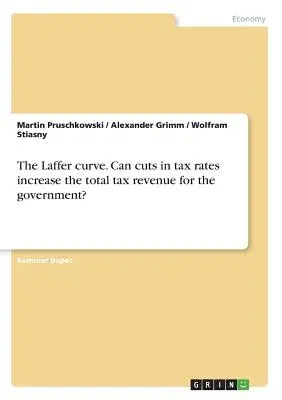Martin Pruschkowski
(Author)The Laffer curve. Can cuts in tax rates increase the total tax revenue for the government?Paperback, 7 August 2018

Qty
1
Turbo
Ships in 2 - 3 days
In Stock
Free Delivery
Cash on Delivery
15 Days
Free Returns
Secure Checkout
Print Length
44 pages
Language
English
Publisher
Grin Verlag
Date Published
7 Aug 2018
ISBN-10
366875165X
ISBN-13
9783668751651
Description
Product Details
Book Format:
Paperback
Country of Origin:
US
Date Published:
7 August 2018
Dimensions:
21.01 x
14.81 x
0.28 cm
ISBN-10:
366875165X
ISBN-13:
9783668751651
Language:
English
Pages:
44
Publisher:
Weight:
68.04 gm

